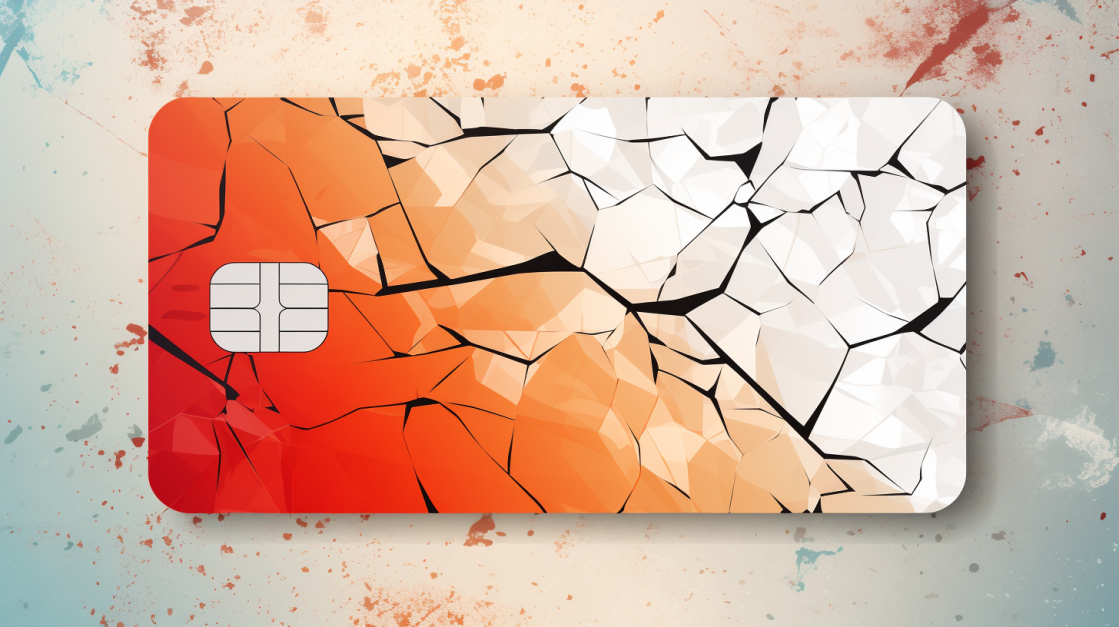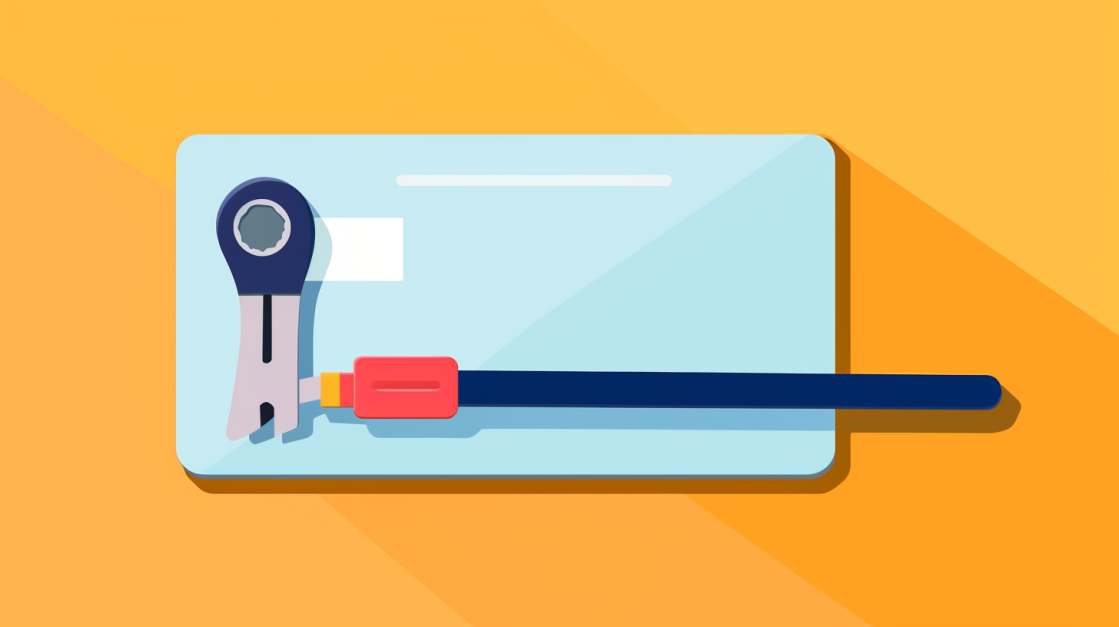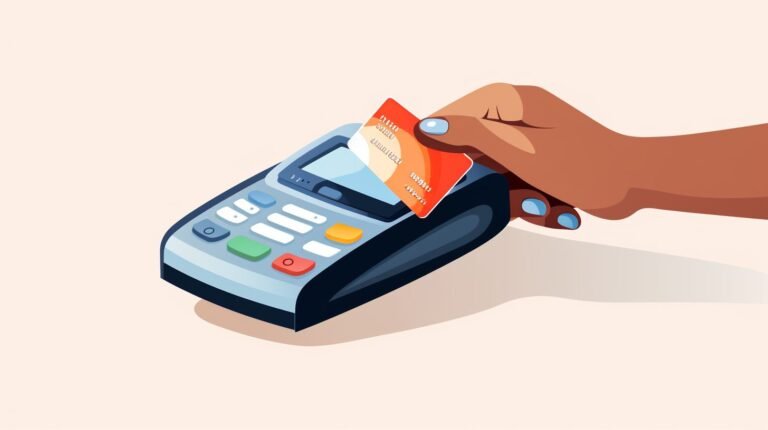Unlock Financial Freedom: Tips for Repairing Bad Credit

Having bad credit can be a significant roadblock to achieving financial freedom. It can impact your ability to get approved for loans, credit cards, and even housing. However, the good news is that bad credit can be repaired with the right strategies and effort. In this article, I will share some valuable tips for repairing bad credit and improving your creditworthiness.
Key Takeaways:
- Bad credit can hold you back from achieving financial freedom
- With the right strategies, bad credit can be repaired
- Credit counseling services and credit repair methods can be helpful
- Improving creditworthiness requires responsible financial habits
Understanding Bad Credit
Before we dive into credit repair strategies, it’s essential to understand bad credit and how it affects your financial opportunities. A credit score is a numerical representation of your creditworthiness, ranging from 300 to 850. A low credit score is typically below 650 and may hinder your chances of getting approved for loans, credit cards, or even a rental apartment.
Several factors can contribute to a low credit score, including missed payments, high balances on credit cards, and negative items like bankruptcies or collections. Your credit history, including the length of your credit accounts, also plays a role in determining your credit score.
But don’t let a low credit score discourage you. With the right knowledge and strategies, you can improve your credit score and put yourself on the path to financial success.
How to Fix Bad Credit

First and foremost, you can fix bad credit by reading your credit report and identifying any errors or inaccuracies. If you notice something that doesn’t look right, dispute it with the credit bureau to have it removed from your credit report.
Another method for improving your credit score is by making on-time payments, paying down debts, and maintaining a low credit utilization ratio. You can also consider debt consolidation or negotiating with creditors to reduce your outstanding balances.
If you’re unsure where to start, consider seeking professional credit counseling services or using credit repair methods to get your credit score back on track.
Assessing Your Current Credit Situation
Before embarking on any credit repair strategies, it is essential to assess your current credit situation. First, obtain a free copy of your credit report from each of the three major credit bureaus (Equifax, Experian, and TransUnion) at annualcreditreport.com. Review your credit history for inaccuracies or errors, noting any negative factors that may be impacting your credit score.
Next, evaluate your current debts and payments. Make a list of all your outstanding debts, including the creditor, balance, interest rate, and monthly payment. Prioritize your debts by starting with those with the highest interest rates or the lowest balances.
To boost your credit score, aim to keep your credit card balances low, ideally at no more than 30% of your credit limit. Consider setting up automatic payments to ensure timely payments and avoid missed payments that can hurt your credit score.
Rebuilding credit takes time, but there are some techniques you can use to speed up the process. For instance, becoming an authorized user on someone else’s credit card can help establish a positive credit history. Alternatively, consider obtaining a secured credit card, which requires a security deposit, but can be used to build credit if used responsibly.
In summary, rebuilding your credit requires a comprehensive understanding of your current credit situation. By reviewing your credit report, assessing your debts and payments, and making timely payments, you can start boosting your credit score and taking control of your financial future.
Creating a Debt Management Plan

Debt can hold you back from achieving financial freedom and rebuilding credit, but creating a debt management plan can help you take control of your finances. Here are some debt management tips to consider:
| Tip | Description |
|---|---|
| Create a budget | Identify all of your expenses and income, and make a plan for spending and saving. This can help you prioritize your debt payments and avoid overspending. |
| Focus on high-interest debt | If you have multiple debts, focus on paying off the ones with the highest interest rates first. This can help you save money in the long run. |
| Consider debt consolidation or negotiation | Debt consolidation involves combining multiple debts into one loan with a lower interest rate. Debt negotiation involves working with your creditors to reduce your overall debt amount. Both options can help simplify your debt payments and make them more manageable. |
Remember, creating and sticking to a debt management plan takes time and discipline. It may require making some sacrifices, such as cutting back on discretionary spending or taking on additional work. However, with patience and perseverance, you can successfully manage your debt and take steps towards financial freedom.
Improving Creditworthiness
Improving your creditworthiness is essential for repairing bad credit. Making timely payments, keeping credit card balances low, and diversifying your credit mix are all effective strategies. Here are some additional tips to consider as you work towards improving your credit:
- Pay off high-interest debt first: If you have multiple debts, prioritize paying off the ones with the highest interest rates first. This will help you save money in the long run.
- Don’t close old credit accounts: Even if you’re not using a credit card, keeping it open can help improve your credit score. This is because it shows a longer credit history, which can be beneficial.
- Limit credit inquiries: Too many credit inquiries within a short period can negatively affect your credit score. Try to limit credit applications to only when necessary.
- Monitor your credit report: Regularly checking your credit report can help you identify errors or discrepancies that may be negatively impacting your credit score. Dispute any inaccuracies with the credit bureaus to have them corrected.
- Consider a secured credit card: If you’re having trouble getting approved for a traditional credit card, a secured credit card may be a good option. This type of card requires a security deposit and can help you build credit over time.
By following these tips and making smart financial decisions, you can improve your creditworthiness and move closer to achieving financial freedom.
Can Building Credit from Scratch Help Repair Bad Credit?
Building credit from scratch alone may not directly repair bad credit, as it requires creating a positive credit history. However, starting to build credit from scratch is a crucial step towards improving credit health in the long run. This involves responsibly managing credit accounts, making timely payments, and keeping credit utilization low. Over time, this can lead to a stronger credit profile and potentially help repair previous bad credit issues.
Exploring Credit Counseling Services

If you’re feeling overwhelmed about repairing your bad credit, consider seeking the help of credit counseling services. These services can provide personalized advice and assistance in creating a realistic budget. They can also negotiate with creditors on your behalf and help you to develop a debt management plan.
Credit counselors are trained professionals who can provide guidance on improving creditworthiness and rebuilding credit. They can help you to identify the negative factors affecting your credit score and provide tips on how to boost your credit score. Additionally, credit counseling services can offer financial education and resources to help you better understand and manage your finances.
How Does Credit Counseling Work?
When you seek credit counseling services, a certified credit counselor will assess your credit situation and help you to create a plan to repair your credit. The counselor will review your credit report and identify negative factors affecting your credit score. They will then work with you to develop a debt management plan, which may involve negotiating lower interest rates or payment plans with your creditors.
Credit counseling services can also provide education on budgeting and personal finance, as well as resources for debt consolidation or bankruptcy if necessary. Most credit counseling services require a nominal fee for their services, but some offer free counseling sessions.
It’s important to note that credit counseling services are different from credit repair companies. While credit repair companies may promise to fix your credit quickly, they often charge high fees for their services and may not be able to deliver on their promises. Credit counseling services, on the other hand, provide personalized advice and assistance in creating a plan to repair your credit over time.
Benefits of Credit Counseling Services
There are numerous benefits to working with a credit counselor. One of the main advantages is that credit counseling services can help you to develop a personalized plan to repair your credit. They can also provide education and resources to help you better manage your finances and avoid future debt problems. Additionally, credit counseling services can work with your creditors to negotiate lower interest rates or payment plans, which can help you to pay off your debt faster.
Overall, credit counseling services can be an effective tool for repairing bad credit and achieving financial stability. If you’re feeling overwhelmed about your finances or have been struggling to improve your credit score on your own, consider seeking the help of a credit counselor.
By taking advantage of these services and implementing the strategies discussed in this article, you can take control of your financial future and unlock the key to financial freedom.
Strategies for Credit Repair

Repairing bad credit may seem like an intimidating task, but there are effective strategies that can help. With persistence and a plan, you can improve your credit score and achieve financial freedom. Here are some credit repair strategies to consider:
- Dispute errors on your credit report: Review your credit report for any errors or inaccuracies. If you find any, file a dispute with the credit bureau to have them corrected or removed.
- Negotiate with creditors: Reach out to your creditors to see if they are willing to negotiate your payment terms or settle for a lesser amount. This can potentially lower your debt and improve your credit score.
- Consider professional credit repair services: There are companies that specialize in credit repair and can help you navigate the process. Just be sure to do your research and choose a reputable company.
These are just a few credit repair strategies to consider. Remember, every credit situation is unique and what works for one person may not work for another. It’s important to assess your own situation and determine the best course of action for your specific needs.
Building Positive Credit History
If you’re working on rebuilding your credit, it’s important to start building positive credit history. Without a positive credit history, it can be difficult to improve your creditworthiness and achieve financial freedom. Here are some techniques you can use:
Use a Secured Credit Card
Secured credit cards are a great tool for building credit history. These cards require a cash deposit that serves as collateral in case you fail to make payments. Because the deposit reduces the risk for the issuer, secured credit cards are often easier to obtain, even with bad credit. Be sure to choose a secured credit card that reports to credit bureaus so that your on-time payments are reflected in your credit report.
Become an Authorized User
An authorized user is someone who is added to someone else’s credit card account. By becoming an authorized user on a family member or friend’s credit card, you can piggyback on their positive credit history. Be sure to choose someone who has a good credit history and who pays their bills on time. However, be aware that if the primary cardholder misses a payment or carries a high balance, it can negatively affect your credit score as well.
Make Regular Payments on Time
One of the most important factors in building positive credit history is making regular payments on time. This shows lenders that you are responsible and can manage your finances effectively. Set up automatic payments or reminders to ensure that you don’t miss any payments. Even one missed payment can have a negative impact on your credit score.
Diversify Your Credit Mix
Having a variety of credit accounts can also help to build positive credit history. This includes credit cards, loans, and lines of credit. However, be sure to only apply for credit that you need and can manage responsibly. Having too many accounts or applying for credit too frequently can have a negative impact on your credit score.
By using these techniques, you can start building positive credit history and increase your creditworthiness. Remember, rebuilding your credit takes time and patience, but by making responsible financial decisions and practicing good credit habits, you can achieve financial freedom.
Staying on Track: Maintaining Good Credit

Now that you have taken the necessary steps to repair your bad credit, it’s important to maintain good credit. Doing so will help ensure that you are able to achieve your financial goals and enjoy financial freedom.
To maintain good credit, you should continue to practice responsible financial habits. This means making timely payments on all of your debts and keeping credit card balances low. It’s also important to avoid applying for new credit unless absolutely necessary, as too many credit inquiries can lower your credit score.
Monitoring your credit regularly is also crucial for maintaining good credit. You can obtain a free copy of your credit report once per year from each of the three major credit bureaus. Review your credit report carefully to ensure that all of the information is accurate and up-to-date.
| Credit Score Improvement Tip: | Consider setting up automatic payments for your bills to ensure that you never miss a payment. |
|---|---|
| Make a plan to pay down any remaining debts and avoid taking on new debt. | |
| Think twice before closing old credit accounts, as this can shorten your credit history and lower your credit score. |
By following these tips and continuing to practice good financial habits, you can maintain good credit and achieve financial freedom.
Additional Resources for Credit Repair
If you’re looking for additional guidance on repairing bad credit, there are several resources available to you. These resources provide valuable information and tools to help you improve your credit score and achieve financial freedom.
Credit Counseling Services
One helpful resource for credit repair is credit counseling services. These services offer personalized advice and support in creating a realistic budget, managing debt, and negotiating with creditors. They can also provide education and resources to help you improve your credit score over time. Some reputable credit counseling services include:
| Organization | Website |
|---|---|
| National Foundation for Credit Counseling | https://www.nfcc.org/ |
| Money Management International | https://www.moneymanagement.org/ |
| GreenPath Financial Wellness | https://www.greenpath.com/ |
It’s important to do your research and choose a reputable credit counseling service that fits your needs and budget.
Credit Repair Methods
There are several credit repair methods you can use to improve your credit score. These methods include:
- Disputing errors on your credit report
- Negotiating with creditors
- Considering professional credit repair services
It’s important to be diligent and patient when using these methods, as credit repair can take time. Be wary of any credit repair service that promises quick fixes or guaranteed results, as these are often scams.
Can Building Credit from Scratch Help Repair Bad Credit?

Building credit from scratch alone may not directly repair bad credit, as it requires creating a positive credit history. However, starting to build credit from scratch is a crucial step towards improving credit health in the long run. This involves responsibly managing credit accounts, making timely payments, and keeping credit utilization low. Over time, this can lead to a stronger credit profile and potentially help repair previous bad credit issues.
Exploring Credit Counseling Services
If you’re feeling overwhelmed by your debt and unsure of how to proceed, credit counseling services may be a great option for you. These services provide personalized advice and assistance, helping you create a realistic budget and negotiate with your creditors to improve your financial situation.
Working with a credit counselor can also help you develop healthy financial habits and improve your creditworthiness over time. They can help you identify areas where you can cut back on your spending and provide guidance on how to manage your debt responsibly.
When selecting a credit counseling service, it’s important to do your research and choose a reputable organization. Look for services that are accredited by the National Foundation for Credit Counseling or the Financial Counseling Association of America.
Many credit counseling services offer their services for free or for a small fee. Some may also offer debt management plans, which can help you consolidate your debt and make more manageable monthly payments.
Ultimately, the goal of credit counseling services is to help you take control of your financial future and improve your creditworthiness. If you’re struggling with debt or bad credit, consider reaching out to a credit counselor for guidance and support.
By working with a credit counselor and implementing the strategies discussed in this article, you can take steps towards repairing your bad credit and achieving financial freedom.
Conclusion
Repairing bad credit can seem overwhelming, but with the right strategies and mindset, it is achievable. By understanding what bad credit is, assessing your current credit situation, creating a debt management plan, improving creditworthiness, exploring credit counseling services, and utilizing credit repair strategies, you can take control of your financial future.
Remember to stay on track by maintaining good credit habits and regularly monitoring your credit report. Take advantage of additional resources and tools available to you, including credit counseling services and books on credit repair.
Don’t let bad credit hold you back from achieving your financial goals. With dedication and persistence, you can unlock your financial freedom and take control of your financial future. Start implementing these tips and strategies today and see the positive impact it can have on your credit score and overall financial well-being.
FAQ
Q: What is bad credit?
A: Bad credit refers to a low credit score that is a result of missed payments, high debt, or other financial missteps. It can make it difficult to obtain loans, credit cards, or favorable interest rates.
Q: How does bad credit affect me?
A: Bad credit can limit your financial opportunities. It can make it harder to get approved for loans or credit cards, and you may have to pay higher interest rates. It can also impact your ability to rent an apartment or get certain types of insurance.
Q: How can I improve my credit score?
A: Improving your credit score takes time and discipline. Start by making all of your payments on time, reducing your debt, and disputing any errors on your credit report. It’s also important to maintain a good credit utilization ratio and keep old accounts open.
Q: Should I consider credit counseling services?
A: Credit counseling services can be beneficial if you need assistance creating a budget, managing your debt, or negotiating with creditors. They can provide personalized advice and help you develop a plan to improve your credit.
Q: How can I repair my bad credit?
A: Repairing bad credit involves a combination of strategies. You can start by disputing errors on your credit report, negotiating with creditors, and considering professional credit repair services. It’s important to be proactive and consistent in your efforts.
Q: What can I do to build positive credit history?
A: Building positive credit history requires responsible financial habits. Make all of your payments on time, keep your credit card balances low, and diversify your credit mix. It’s also helpful to become an authorized user on someone else’s account or use secured credit cards.
Q: How can I maintain good credit once I’ve repaired it?
A: To maintain good credit, it’s important to continue practicing responsible financial habits. Avoid excessive credit inquiries, monitor your credit regularly, and make all of your payments on time. It’s also helpful to keep your credit utilization ratio low and avoid closing old accounts.
Q: Where can I find additional resources for credit repair?
A: There are several resources available to help you with credit repair. Websites, books, and organizations offer valuable information and guidance on repairing bad credit. Consider exploring these resources to gain further knowledge and support.
Q: How long does it take to repair bad credit?
A: The time it takes to repair bad credit can vary depending on your individual circumstances. It’s important to be patient and consistent with your efforts. Over time, you should see improvements in your credit score as you implement the strategies discussed.






